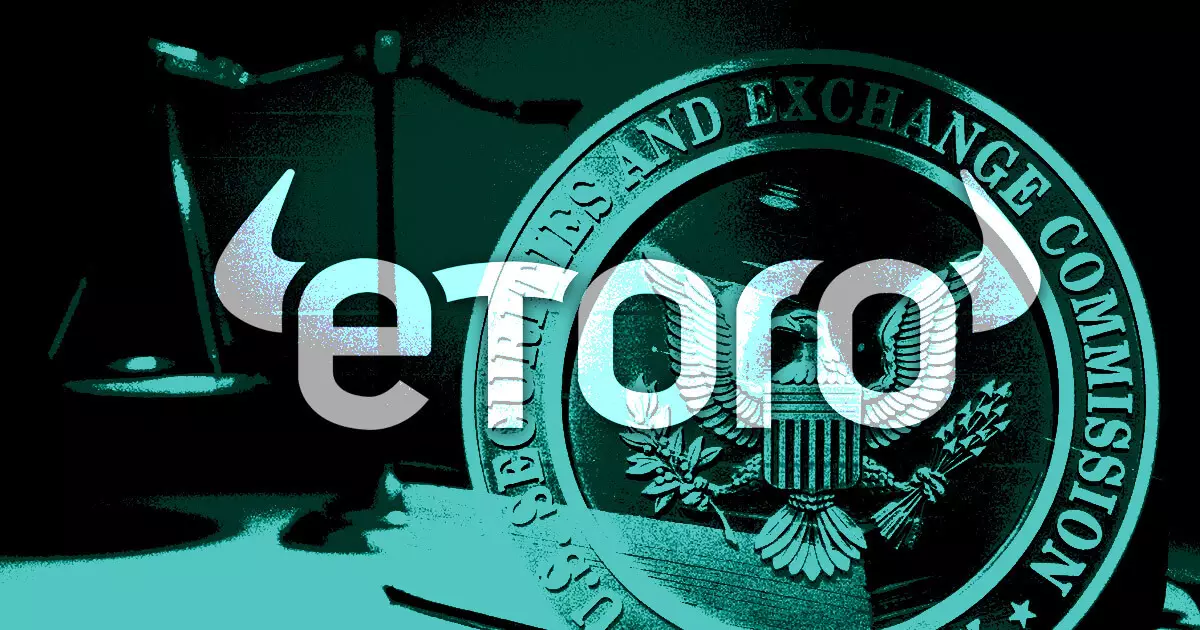In a significant regulatory move, eToro has announced that it will be halting trading for most digital assets on its platform due to a $1.5 million settlement with the U.S. Securities and Exchange Commission (SEC). This decision follows an investigation initiated in 2020, which uncovered that eToro had been allowing U.S. customers to trade certain cryptocurrency assets classified as securities without the required federal registration. This settlement does not signify an admission of guilt from eToro, but rather highlights the platform’s commitment to align with regulatory requirements.
As part of the agreement, eToro will limit its crypto offerings exclusively to well-known assets such as Bitcoin, Bitcoin Cash, and Ethereum. Such a drastic cutback reflects the SEC’s increasingly stringent approach towards crypto platforms that fail to comply with securities laws. Gurbir S. Grewal, the SEC’s Director of Enforcement, emphasized that this move is intended to enhance investor protection and provides a roadmap for other crypto intermediaries to follow.
eToro’s decision to significantly narrow its digital asset offerings marks an important moment in the ongoing tension between regulatory authorities and cryptocurrency platforms. The SEC’s actions against eToro are emblematic of a broader crackdown on various crypto exchanges, including high-profile platforms like Binance, Kraken, and Coinbase. The regulatory landscape is becoming ever more tangled, with the SEC actively pursuing legal actions against other firms, such as Robinhood and OpenSea, furthering the urgency for compliance among crypto intermediaries.
In light of these challenges, eToro’s co-founder and CEO Yoni Assia maintains a positive outlook. He asserts that the settlement offers the company an opportunity to refocus its efforts on compliance while continuing to innovate. Assia acknowledges the necessity of adapting to a regulatory framework and expresses hope that similar regulations may soon come into effect in the U.S., as they already have in the UK and Europe. This belief illustrates eToro’s commitment to navigating the complexities of crypto regulation and adapting to it, signaling a path forward for the platform.
To facilitate this transition, eToro has provided its users with guidelines to manage their crypto holdings. Customers can either liquidate their positions or transfer supported cryptocurrencies to the eToro wallet before March 11, 2025. Following this date, any remaining crypto positions that are not on the approved list will be liquidated. This timeline allows users to adjust to the changing landscape and signifies eToro’s intent to maintain openness during this regulatory transition.
The SEC’s settlement with eToro is not just a defining moment for the platform; it also serves as a wake-up call for the entire cryptocurrency industry. As regulators increasingly scrutinize crypto activities, companies like eToro are forced to reevaluate their strategies to ensure compliance. Ultimately, this settlement illustrates the evolving nature of the cryptocurrency marketplace, as players align more closely with regulatory frameworks to foster a safer and more transparent trading environment. The future landscape will hinge on how effectively these platforms can balance innovation with compliance, a challenge that will define the next chapter of crypto trading.

